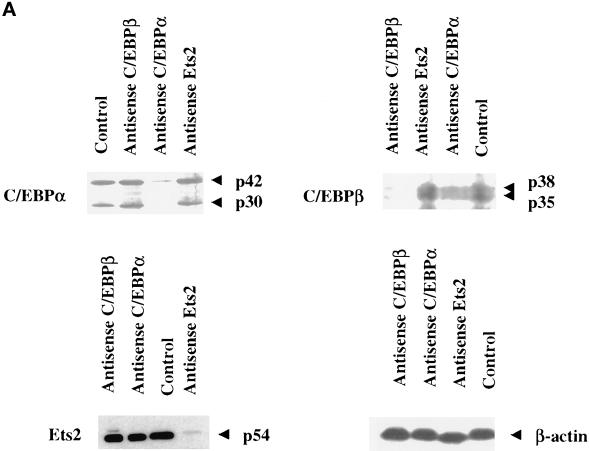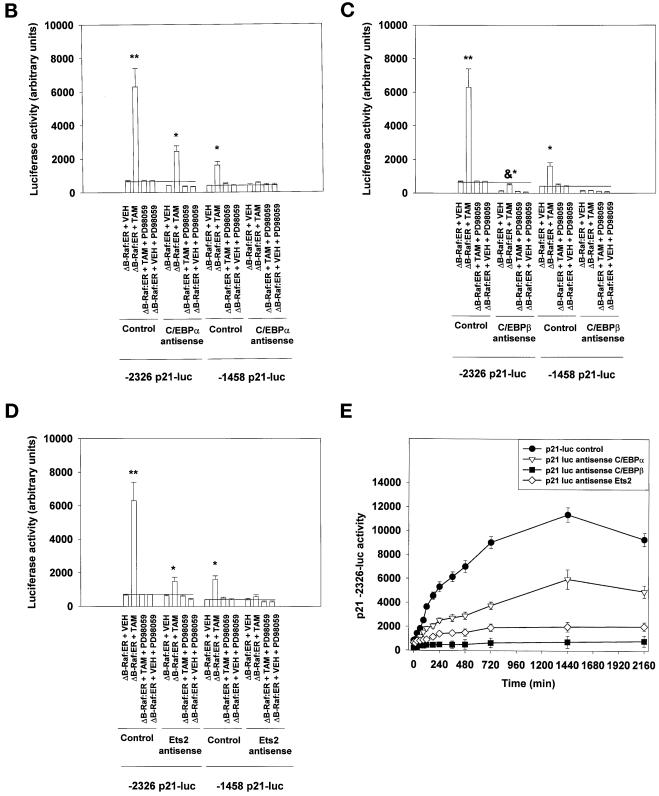Figure 4.
MAPK-dependent modulation of p21-promoter activity in primary hepatocytes depends upon the function of multiple transcription factors. (A) Antisense C/EBPα, antisense C/EBPβ, and antisense Ets2 reduce protein levels of their respective proteins in primary hepatocytes. (B) Antisense C/EBPα partially reduces MAPK-induced promoter activity from -2326 full length and -1458 truncated p21 promoter constructs. (C) Antisense C/EBPβ considerably reduces MAPK-induced promoter activity from -2326 full length and -1458 truncated p21 promoter constructs. (D) Antisense Ets2 considerably reduces MAPK-induced promoter activity from -2326 full length and -1458 truncated p21 promoter constructs in primary hepatocytes. (E) Time course (0 to 36 h) of -2326 full-length promoter activation in cells infected with either antisense C/EBPα, antisense C/EBPβ or antisense Ets2. Hepatocytes were infected with kinase active ΔB-Raf:ER poly-L-lysine adenovirus (250 m.o.i.), followed by culture as in Methods. In addition to ΔB-Raf:ER infection, cells were also infected with plasmids containing either -2326 full-length or -1458 truncated p21-promoter constructs (100 m.o.i.) where indicated. In panels B and C, in addition to ΔB-Raf:ER infection, cells were also infected with plasmids to express either antisense C/EBPα or antisense C/EBPβ (200 m.o.i.). In panel D, cells were transfected with an antisense oligonucleotide to Ets2 (10 μM, using Superfect reagent as per manufacturer's instructions). (A-D) After 24 h to allow protein expression, hepatocytes were treated with either vehicle control or with 100 nM 4-hydroxytamoxifen, and with or without 50 μM PD98059, for 480 min and luciferase activity determined as in Methods (n = 8 ± SEM). (E) After 24 h to allow protein expression, hepatocytes were treated with 100 nM 4-hydroxytamoxifen and luciferase activity determined at the indicated times as in Methods (n = 3 ± SEM). **p < 0.001 greater than non-TAM treated control value; *p < 0.05 greater than non-TAM treated control value; & p < 0.05 less than corresponding control (nonantisense) value..


